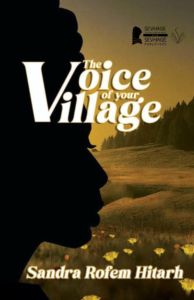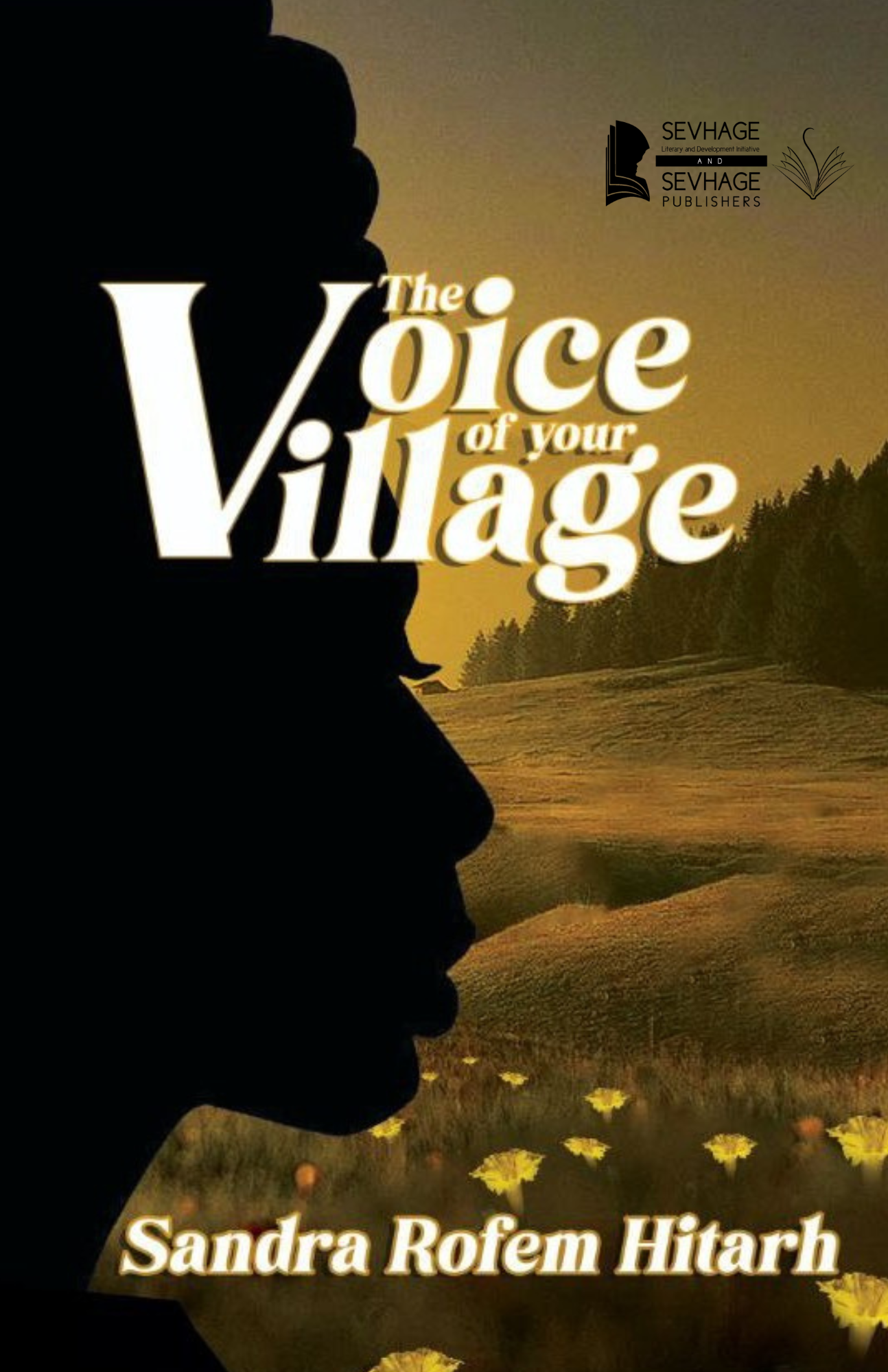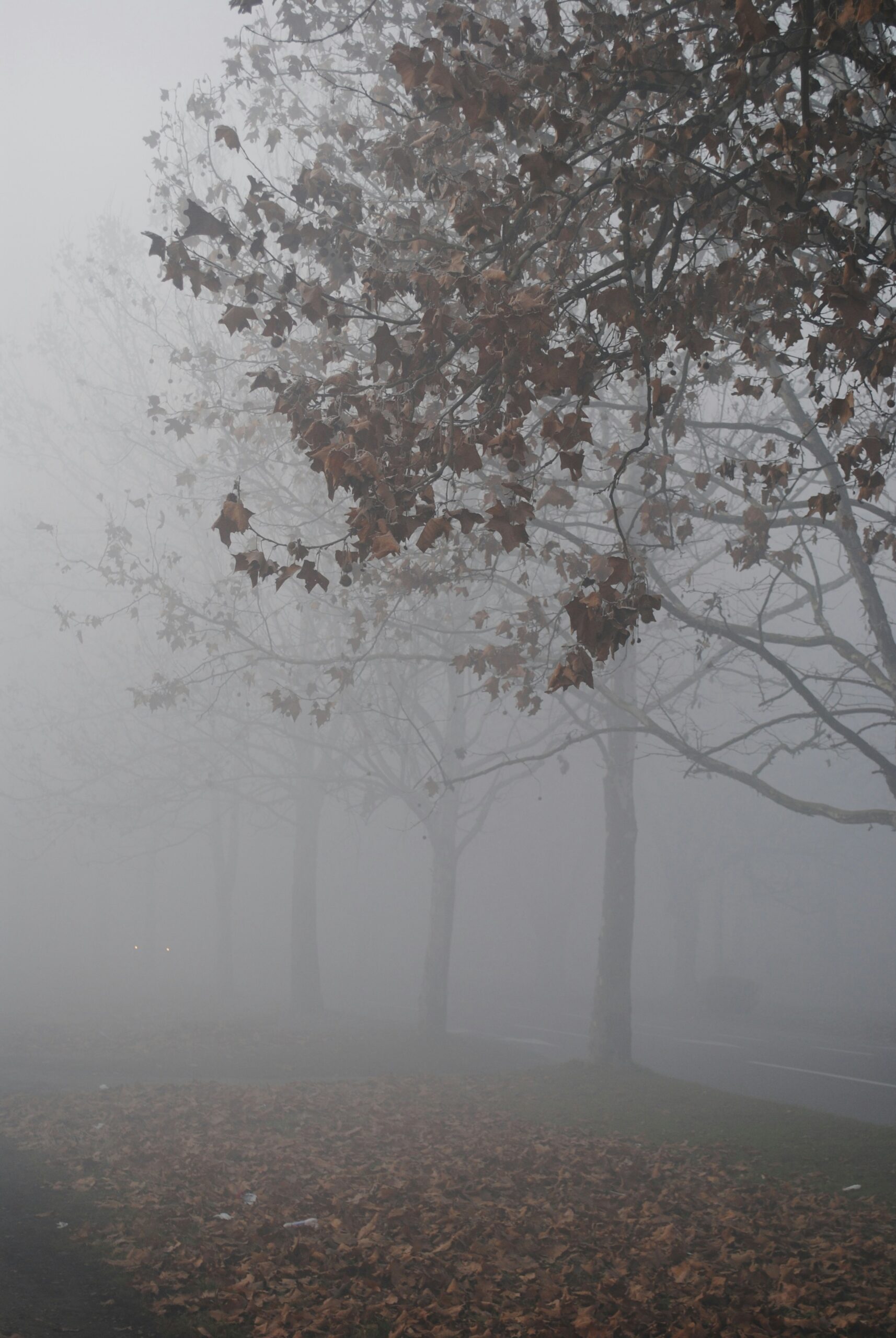Book Name: The Voice of Your Village
Pages: 72
Year of Publication: 2024
Publisher: SEVHAGE
Reviewer: Owen Odeson

Sandra Rofem Hitarh’s The Voice of Your Village begins with questions: “How do we describe the viciousness in our streets today?” A perceptive reader knows that beyond the mundaneness we ascribe to daily street events, there is also a deep reflection of our socio-cultural, economic, and political behaviours. From the first question posed in the poem “Crazy Things Are Happening,” we are confronted with the people’s poetry—and by this, I mean a poetry that thrives beyond the individual and confessional trope that dominates contemporary Nigerian writing. What, then, is the cause of the viciousness to which Sandra Hitarh draws our attention? This is the journey of the poem, and it reflects the uncertainties in different facets of life:
Who is the custodian of justice, and where does wisdom reside?
Would it ever come, the answers to our questions?
And when it does, would it bear solutions?
When would doomsday end?
If there’s a queue, who’s next?
Thus, there is a queue of questions, and they all address our daily concerns. But just as the poem leaves all the question marks hanging above us, we too do not have the answers to the questions it asks.
The second poem, which introduces the reflective character of Babafusa, sets the tone for the entire collection, focusing on the issue of class dynamics and the way it dictates our existence. With “Babafusa’s Burial,” Hitarh shows how a seemingly simple subject—not simple in that death is a mundane topic, but in its common treatment in poetry—can be connected to core societal issues. In essence, the poet skilfully weaves class and death into such a delicate merging that it almost seems natural for death and dying to serve as a key reflective paradigm for class evaluation.
While the poem begins with Babafusa’s life journey and leads towards his death, the memories he lived become our collective memories, and everything he has seen remains with us. In the poverty surrounding his life, we witness the abject core of Nigeria. Hitarh forewarns us that we are projecting objective reality:
This one we would see for what it was—
Nothing! Living on torn mats and feeding on dry morsels,
his saggy skin at 110, spoke of his life’s long route.
64 years down the line, he had journeyed twice his years.
Waltzed through the sharp edges of the earth, where he fell,
took turns from life’s fists as they pounded every effort failed, every system broke.
The poem carries us through its stretch of an opening en dash, as if it is another signifier that we are embarking on a long ride through life in our nation. True to this presence, the reading from that line opens a range of issues. In this long range—like Babafusa’s life, like our nation—every system broke, and life’s fists pounded our every effort.
The second stanza tells us the space we are talking about is Nigeria, as we see the state for what it is with the crashing naira and economic uncertainty, which leaves us “fed for today and a wanderer for tomorrow.” The poem explores the life of the proletariat, offering a Marxist interpretation of societal existence. However, Hitarh succeeds in capturing the historical flux, showing that class relations cannot be separated from the full political economy of any nation.
The poem further takes us through a historical arc, illustrating how colliding events and imperatives drive Babafusa’s economic state. These drivers include “The one of neo-colonialism and the purchasing of our own crude / The one of the letter bombs and coups / The one of greed: ever packing but never coming to wealth.” With allusions to Euro-American control of African natural resources, the death of Dele Giwa by letter bomb, and the corruption of greedy leaders who remain the “ambassadors of poverty,” it is easy to see that at Babafusa’s burial, we are confronted with how our society treats its people, more than with the persona’s journey through death.
The poem “Ma’Afusa” presents life through the lens of Babafusa’s wife. It explores the issues of class divide and its interconnectedness with gender. The poem opens with a testament to how Ma’Afusa’s presence, hard work, and worth have been lost to society’s exclusionary acts:
To the background, relegated
She has been there all along
With a big belly,
This time for the fifth
By four, jumped on the lorry to Mile 12
Two baskets of “esha ‘ti rodo”
Life has been a long one,
The pepper had lost its spice
But her gaze burnt up the sun
While one could argue that class disparity is a core factor determining people’s existence, we also cannot ignore the issue of gender—what is bad for the poor man is worse for the poor woman. We see Ma’Afusa, with her fifth pregnancy, navigating Lagos’ rowdy streets at 4 a.m. because she needs to buy pepper to sell.
In the third stanza of the poem, as if unable to narrate Ma’Afusa’s woes, Hitarh steps back as the poet-narrator and gives the persona a voice to recount her own plight. With her children dying before her eyes and a baby melting in her belly, Ma’Afusa finds her voice. This act is one of the most striking linguistic techniques employed by the poet, symbolising the poor reclaiming their voice and, by implication, taking charge of their lives. It reflects the ethos of contemporary culture, where minority groups are reclaiming their narratives from those who once controlled them. With a scream that marks her awakening, Ma’Afusa cries “Yeee,” and this marks the beginning of one of the most powerful class-conscious poems in Nigerian poetry over the last three years, infused with class and a womanist perspective:
Do I celebrate
Freedom to sleep on the lorry’s roof
Ignore the conductor’s push
or the ease of how he died,
Like the rich pray for. Fast
“Baba Fusa, what difference have you made?
Dead or alive, I remain the same
Alone. Alone to scavenge for food.
It is easy to hear the grief from Ma’Afusa’s voice, even as she questions whether she should celebrate. Although it may seem that she is indifferent to her husband’s death—since, as she says, his death or life makes no difference to the family’s economic plight—it actually stems from a belief that Baba’Afusa chose the easier path by dying. She calls him a coward: “Perhaps Babafusa had planned his escape/ A way to dodge/ What a coward!/ To carefully stand in the way of a straying bullet.”
Ma’Afusa embodies the lives of peasant women across Africa. She tells us, “I know pain / I’ve known sadness / It sits there undisturbed / Justifiable reasons to die.” As a woman who has witnessed her son hacked to death in cult clashes and a husband who succumbs to drinking ‘monkey tail’ and playing draughts all day, coming home only to procreate, she reflects the conditions of women from the downtrodden class.
We journey through the collective trauma suffocating Ma’Afusa’s world and the bloodshed in our society. In “Nuisance and a Cluster of Maggots,” focusing on the offspring of our central character, Hitarh writes: “The filth from the fifth son’s ears / And the guilt in the firstborn’s eyes / It does not fail to whisper the wailings of the family.” The thematic coherence and linearity of the personas Hitarh creates make it clear that we are all children of Baba’Afusa, sharing the same blood. Yet, the poet reminds us:
But blood no longer runs in vein
It runs in Zamfara
This new spate has come to stay
It runs in Imo and Anambra,
A passing the contaminated blood
It runs through the valves of our confluence
Rising from oil Rivers into the Gulf of Guinea
The poet asks whether the deaths happening across the country are justified: “A death with no meaning? / Am I asking the right person?” These deaths are not disconnected from the global crises brought on by the world’s current order. This is what makes Hitarh’s collection stand out: its coherence of ideas and clarity of purpose. In “Covid-19 and the Earth,” she tells us, “Today we mourn.” The mourning arises from the human-made structure of the world, shaped by capitalist and neo-colonial exploitation of others:
Where was wisdom— When men died of depression?
When hunger ate Africa’s heart?
Antarctica, plagued by anthropogenic pollution?
Where was wisdom when the new world order proclaimed
a reverse of what faith defined and technology hung on the
cross for our sins?
Thus, the collection continues to ask questions, insisting that we, too, raise our voices and ask more questions. For that is the only way the voice of our village will not be lost. In the end, the questions our art presents will become “…how choices become woven fibres of the future.”
Owen Odeson is a writer with a passion for music and poetry, though he prefers listening to the sounds of nature. He lives and writes from Badagry, Lagos.
- THE AFRICAN [SUB]TEXT IN OGUNDARE’S GRIEF DIARY: A REVIEW by Hyginus Ekwuazi - April 10, 2025
- What ‘Nigeria Meets Sweden: An Intercultural Cookbook by Philippe Glago’ Shows: A Review by Soji Cole - March 13, 2025
- SEVHAGE and Konya Shamsrumi presents The Poetry Club UDUS Anthology 2025 - February 11, 2025













Leave a Reply